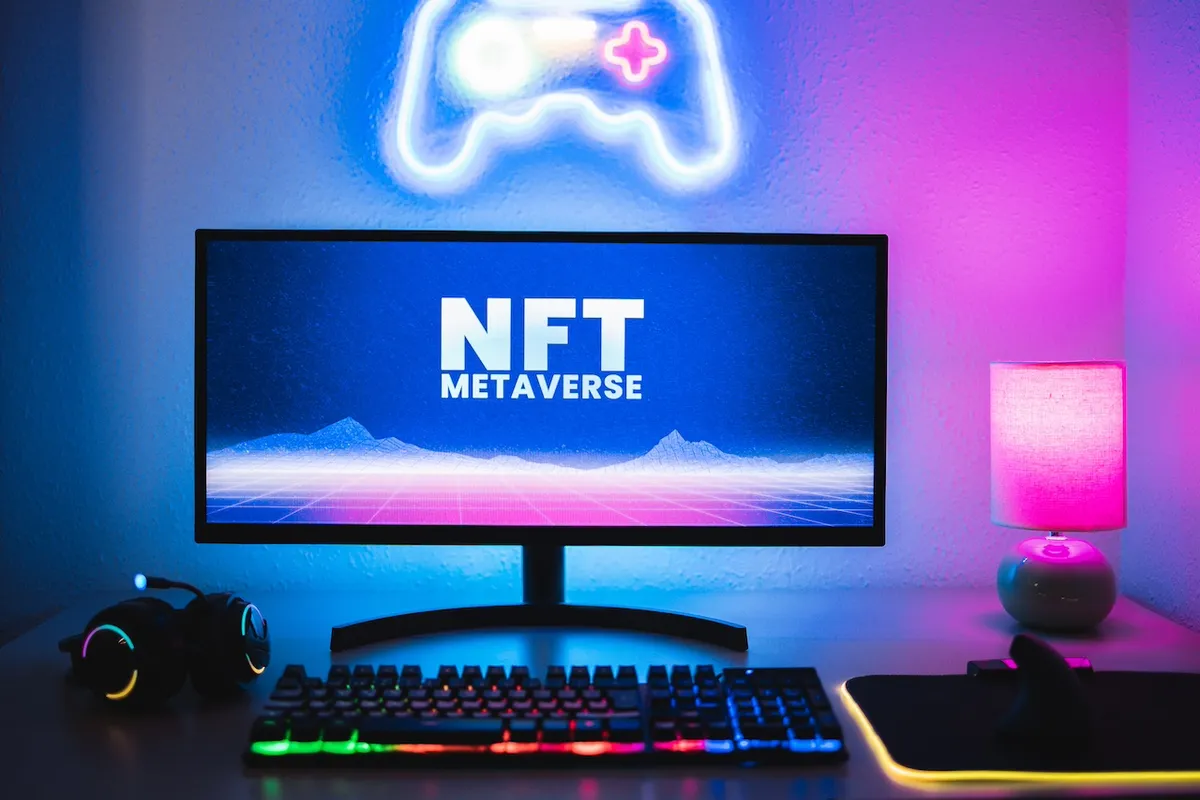Mastering the Fundamentals of Blockchain Basics: A Beginner's Guide to Blockchain Technology

Are you a beginner looking to understand blockchain technology? Blockchain is a decentralized digital ledger that records transactions across multiple computers. In this beginner's guide, we will simplify the fundamentals of blockchain and how it can benefit you. Get ready to demystify the world of blockchain!
What is Blockchain?
Blockchain is like a digital ledger that keeps records of transactions. Once data is put into the blockchain, it cannot be changed, which makes it very secure. Many people across the world maintain this ledger and everyone has to agree before any changes are made.
This technology spread because of cryptocurrency like Bitcoin. But it's not just for money – you can also use blockchain for other things like contracts and property sales without needing middlemen such as banks or lawyers.
It works using complex math called cryptography to keep everything safe from hackers.
How Does Blockchain Work?
Blockchain is like a digital ledger that keeps records of all transactions. Each block in the chain contains a list of transactions. When someone makes a new transaction, it gets broadcast to everyone in the network.
Computers called miners then work hard to confirm this transaction by solving complex puzzles.
Once miners solve these puzzles, they add the new transaction to a block on the ledger. The updated block then links securely to older blocks using special math codes called cryptography.
This creates an unchangeable record of all past deals, which we call immutable. With each new link added to the chain, it becomes harder for anyone to mess with previous transactions.
Now let's dive into the key benefits of blockchain technology!
Key Benefits of Blockchain
Now, let's delve into the key benefits of blockchain technology. Blockchain offers enhanced security through its decentralized nature and cryptographic concepts like data reconciliation and immutable records.
It also promotes transparency, efficiency, and reduced costs in various sectors such as banking and finance, healthcare, supply chains, and voting systems. Moreover, smart contracts enable automation of processes while tokenization allows for fractional ownership of assets and digital currencies on a global scale.
Blockchain technology not only ensures secure transactions but also empowers businesses with a distributed ledger that enhances trust among participants in the network. This decentralized approach to managing data streamlines operations while maintaining the integrity of information across a peer-to-peer network using consensus mechanisms.
Types of Blockchains
Public and private blockchains offer different levels of access and visibility, while blockchain platforms such as Bitcoin, Ethereum, and Stellar provide unique features for various applications.
Public vs Private Blockchains
Understanding the differences between public and private blockchains is crucial for grasping the nuances of blockchain technology. Here's a simplified comparison:
| Aspect | Public Blockchain | Private Blockchain |
| Access | Anyone can join | Restricted to specific users |
| Decentralization | Fully decentralized | Partially decentralized |
| Speed | Slower due to more nodes | Faster with fewer nodes |
| Security | Highly secure through consensus | Depends on access controls |
| Transparency | Complete transparency | Controlled transparency |
| Consensus Mechanism | Proof of Work/Stake | Often permissioned voting |
| Use Cases | Cryptocurrencies, global projects | Enterprise, private networks |
| Examples | Bitcoin, Ethereum | Hyperledger, Corda |
Blockchain Platforms (Bitcoin, Ethereum, Stellar)
Moving on from the discussion on public and private blockchains, let's delve into some specific blockchain platforms. These platforms are designed to cater to various needs and offer unique features. Here are some prominent blockchain platforms:
- Bitcoin: Known as the pioneer of blockchain technology, Bitcoin is a decentralized digital currency that operates without a central authority or banks. It enables peer-to-peer transactions securely and transparently.
- Ethereum: Unlike Bitcoin, Ethereum is not just a digital currency but also a platform for building decentralized applications. It introduced smart contracts, allowing developers to create complex interactions on the blockchain.
- Stellar: Stellar focuses on facilitating low-cost cross-border transactions with the goal of making money more fluid and accessible globally. It aims to connect people, payment systems, and banks.
Applications of Blockchain
Blockchain technology has diverse applications across various industries including banking and finance, healthcare, supply chains, and even voting systems. These innovative applications are redefining how data is managed and transactions are carried out in these sectors.
Banking and Finance
Blockchain has disrupted traditional banking and finance by revolutionizing the way transactions are conducted. It enables secure and transparent peer-to-peer financial interactions without relying on a central authority, reducing costs and enhancing efficiency.
Blockchain's decentralized technology ensures that financial data is tamper-proof through advanced cryptography concepts, providing a trustworthy digital database for transactions.
With blockchain's consensus mechanism, transaction verification occurs within minutes instead of days, promoting faster cross-border payments and reducing the need for intermediaries.
Healthcare
Moving on from the applications of blockchain in banking and finance, another critical area where blockchain technology is making waves is healthcare. With its potential to securely store and manage patient data, facilitate interoperability among different health systems while ensuring privacy, blockchain holds promise for revolutionizing healthcare.
It can streamline processes such as medical record-keeping and supply chain management, ultimately leading to improved transparency and traceability within the industry.
In addition to enhancing data security and integrity, blockchain has the capacity to enable secure sharing of sensitive healthcare information across various stakeholders including patients, providers, and insurers while maintaining compliance with regulatory standards.
Supply Chains
Coming from the healthcare sector, another vital area where blockchain technology shows promise is in supply chains. Blockchain's transparent and immutable nature can significantly enhance traceability and transparency throughout the entire supply chain process.
By leveraging blockchain, companies can securely track the movement of goods, verify authenticity, and ensure compliance with regulations. This not only reduces inefficiencies but also minimizes errors, fraud, and discrepancies across complex supply chain networks.
By integrating blockchain into supply chains, businesses can streamline operations while ensuring the integrity of their products or materials as they move through various stages of production and distribution.
Voting
Moving from supply chains to the topic of voting, blockchain technology offers a secure and transparent solution for electoral processes. The immutable nature of blockchain ensures that once a vote is cast, it cannot be altered or tampered with.
This can potentially eliminate issues such as voter fraud and manipulation, providing a more trustworthy and auditable method for conducting elections. Additionally, blockchain-based voting systems can offer increased accessibility and convenience for voters while maintaining the integrity of the electoral process.
In conclusion, understanding the application of blockchain in voting systems is crucial in exploring its potential impact on democracy and governance. By leveraging the fundamentals of blockchain technology, we can strive towards creating more efficient and reliable electoral procedures that uphold the principles of transparency and security.

Pros and Cons of Blockchain
Blockchain offers benefits such as increased efficiency, transparency, and security, but also comes with drawbacks like cost, speed limitations, and regulatory challenges. To learn more about the pros and cons of blockchain technology, keep reading our beginner's guide!
Benefits (Efficiency, Transparency, Security)
Blockchain technology offers several key benefits, making it a valuable tool in various industries. These benefits include:
- Enhanced Efficiency: Blockchain streamlines processes by removing intermediaries, reducing costs, and speeding up transactions.
- Increased Transparency: The decentralized nature of blockchain ensures that all participants have access to the same information, promoting transparency and trust.
- Robust Security: Through encryption and consensus mechanisms, blockchain provides a secure and tamper-resistant platform for data storage and transactions.
Drawbacks (Cost, Speed, Regulation)
Blockchain technology has certain drawbacks that need to be considered. These can include:
- Cost: Implementing blockchain can be expensive due to initial setup costs, maintenance, and energy consumption for mining.
- Speed: Transactions on some blockchain networks can be slower compared to traditional centralized systems, impacting real-time processing.
- Regulation: The evolving regulatory environment surrounding blockchain technology presents uncertainties and compliance challenges for businesses and organizations.
Next Steps in Mastering Blockchain Basics
Explore recommended courses and resources to continue expanding your knowledge of blockchain, and consider how this technology can advance your career. Keep reading to unlock the full potential of blockchain technology!
Recommended courses and resources
To advance your understanding of blockchain basics, consider exploring the following resources:
- "Blockchain Basics" by ConsenSys Academy: This course provides a comprehensive overview of blockchain technology, including scripting, peer-to-peer networks, decentralization, and consensus mechanisms.
- "Blockchain Fundamentals" on Coursera: This course covers key concepts such as peer-to-peer networks, decentralization, and consensus mechanisms in depth, making it an excellent resource for beginners.
- "Introduction to Blockchain Technology" on Udemy: This introductory course offers a solid foundation in blockchain basics, covering topics like scripting and peer-to-peer networks to help you grasp the fundamentals.
- "Blockchain Revolution: How the Technology Behind Bitcoin Is Changing Money, Business, and the World" by Don Tapscott and Alex Tapscott: This book is a valuable resource that delves into essential concepts such as decentralization and consensus mechanisms in an accessible manner.
Advancing your career with blockchain knowledge
Are you looking to advance your career in the field of blockchain technology? Mastering blockchain basics can open up numerous opportunities across various industries. With the increasing demand for professionals with blockchain expertise, learning about this revolutionary technology can give you a competitive edge in the job market.
Many companies are seeking individuals who understand blockchain's peertopeer network and consensus mechanism, making it a valuable skill set to possess. Whether you are interested in finance, healthcare, supply chain management, or other sectors, having knowledge of blockchain technology can significantly enhance your professional prospects.
Now that we've explored how mastering blockchain basics can boost your career opportunities let's delve into Coursera for Business options and further enhance our understanding of this transformative technology.
Coursera for Business options
After advancing your career with blockchain knowledge, you can explore Coursera for Business options to further enhance your understanding. Coursera offers a variety of courses on blockchain technologytailored to business professionals.
These courses cover topics such as blockchain basics, consensus mechanisms, and real-world applications. Additionally, Coursera provides the flexibility of learning at your own pace and allows you to earn certifications upon course completion.
If you're looking to equip your team with comprehensive knowledge of blockchain fundamentals and its business implications, Coursera for Business offers scalable learning solutions designed for organizational needs.
Frequently Asked Questions
After exploring Coursera for Business options, you may have some lingering questions about blockchain technology. Here are some common FAQs and their answers to help you better understand this groundbreaking technology:
- What is the difference between blockchain and Bitcoin?
- Is blockchain secure?
- How does blockchain impact traditional industries like banking and finance?
- Can blockchain be used for voting systems?
- What are the drawbacks of using blockchain technology?
- What are the best resources for learning more about blockchain technology?
- How can I leverage my knowledge of blockchain for my career advancement?
- Do I need technical skills to understand or work with blockchain?

Conclusion
In conclusion, mastering the fundamentals of blockchain basics is essential for understanding this revolutionary technology. By learning about what blockchain is, how it works, and its applications in various industries, you can gain a practical understanding of its potential impact.
The benefits of blockchain such as efficiency, transparency, and security make it an important field to explore. Furthering your knowledge through recommended courses and resources can empower you to apply blockchain technology effectively in your career or business ventures.
Take the leap into the world of blockchain with confidence and curiosity!
Get legally married online
In partnership with Courtly, get legally married online.
From start to “I do.” Courtly team is fully committed to the cause: getting you married. They've done more remote weddings than anyone. Thousands of couples have counted on Courtly and we know what it takes to secure your legal marriage certificate.
Also, enjoy an exclusive discount available only to the MarryOnChain community! Use code MARRYONCHAIN to get $75 off your wedding.
RelatedRelated articles
All posts




